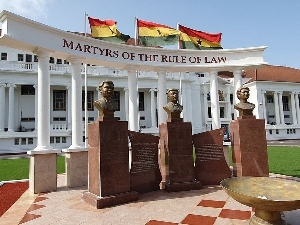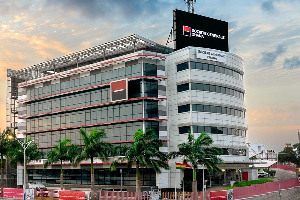Opinions of Friday, 14 July 2023
Columnist: Mercy Adomaa Besseah
2023 World Population celebration
World Population Day was instituted by the United Nations Development Programme
(UNDP) in 1989. The day is celebrated every year on July 11 to raise awareness of global population trends such as population growth, population policies, environmental sustainability, gender equality, health and wellbeing and socio-economic development.
The global theme for this year’s celebration is “Unleashing the power of gender equality: "Uplifting the voices of women and girls to unlock our world's infinite possibilities”.
However, the theme for Ghana is “Unleashing the power of gender equality to spur
development”.
Gender equality is a fundamental principle that drives social progress and fosters sustainable development. According to the 2021 Population and Housing Census, Ghana’s population has quadrupled from 6.7 million in 1960 to 30.8 million. Out of the total population, women and girls make up 50.9%. The high proportion in the numbers of women and girls has implications for development, if given equal opportunities particularly in terms of empowerment in education, health, politics, agriculture, employment among others.
By promoting gender equality and empowering women and girls, Ghana can unlock the infinite possibilities and create a more inclusive, equitable and prosperous nation. Essentially, a lot of progress has been made as a nation to empower women and girls particularly in formal education. The gross enrolment rate for girls in primary education reached 96.2% showing commendable strides towards achieving gender parity in enrolment in the basic schools. (PHC, 2021).
A lot more needs to be done to address the challenges and bridge the disparity gaps that exist in other areas such as political representation, the labour force, violence against women and girls among others.
When it comes to political representation and women in political leadership in Ghana, not much has been achieved. For instance, only 14.8% of women are represented in the eighth parliament of the fourth republic and few women are in ministerial positions even though there has been some improvement over the years. Greater efforts must be made towards achieving gender balance in the mainstream politics.
Again, according to the World Bank Report (2022), the labour force participation rate for women in Ghana stands at 49.6% which is slightly lower than men at 63.4%. In addition, according to a research expert (Doris Dokua Sasu, 2022), the population of males employed in Ghana was estimated at 7.2 million and female employees were projected to be slightly lower around 6.3 million. That means, men have comparative advantage over women when it comes to employment opportunities.
Moreover, women’s average hourly wages are approximately 21% lower than their male counterparts highlighting the need for further efforts to address gender employment and pay gaps to promote equal opportunities in the labour market.
Furthermore, despite efforts to combat violence against women and girls, it remains a significant challenge in the country. Approximately 27% of women aged 15-49 have experienced physical violence while 6% have experienced sexual violence. (GDHS, 2022).













